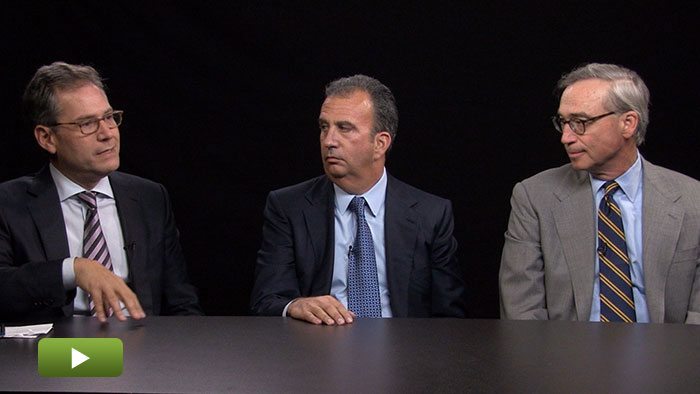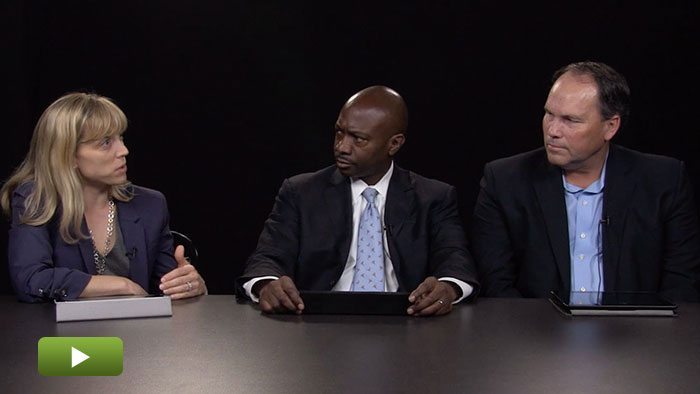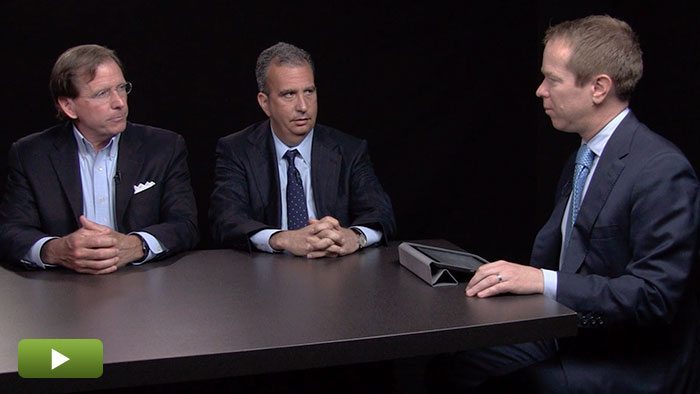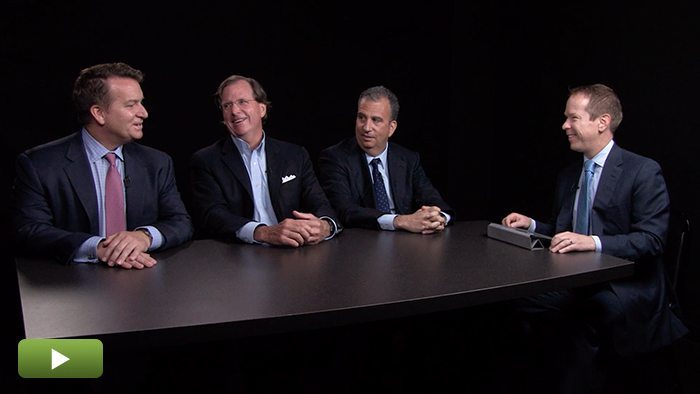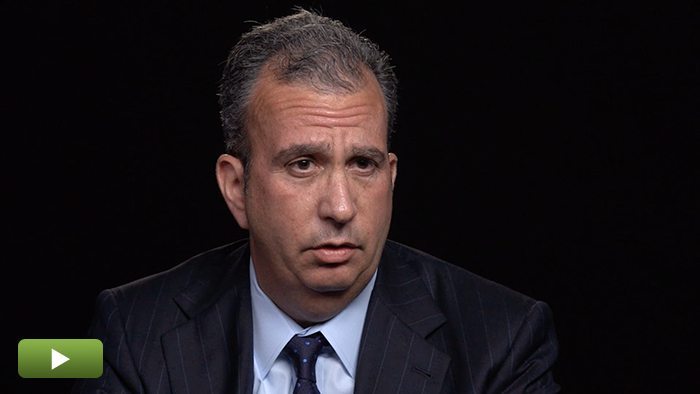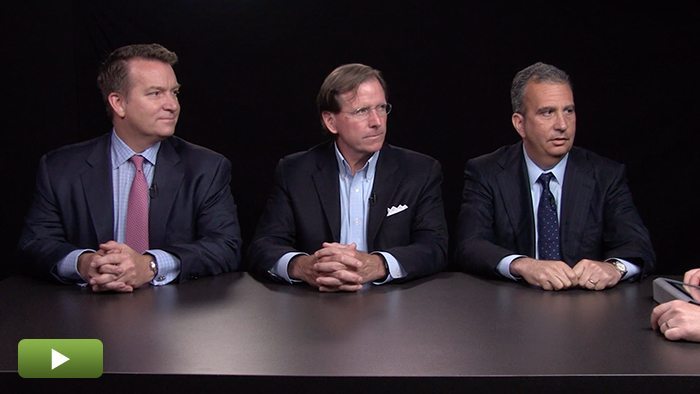Your Track Record: Expect Intense Due Diligence
A friendly relationship with LPs doesn’t mean they won’t subject your track record to intense due diligence once you try to launch your own private equity firm. So say two GPs who launched their own firms and lived through intense LP due diligence. With expert commentary from Steve Millner of Gen II Fund Services.
Transcript Download Transcript
Your Track Record: Expect Intense Due Diligence
Lessons Every Founder Should Learn
David Snow, Privcap: Today, we’re joined by Kenneth Clay of Corinthian Capital Group, Bob Nolan of Halyard Capital, and Steve Millner of Gen II Fund Services. Gentlemen, welcome to Privcap. Thanks for being here.
We’re talking about things you all wish you’d known, or in your case, your clients wish they’d known before launching a private equity firm. We have two private equity firm founders with us, and Steve, you helped many private equity firms get launched.
I’d love to get your views on investors. Is it safe to say that LP due diligence is exceptionally thorough these days? Even if you enjoyed “star” status at the firm you were at, are they still going to rake you over the coals looking at your track record and assessing your team? Kenneth, can you talk about your process of spinning out and the level of due diligence you were subject to as you tried to raise your first fund?
Kenneth Clay, Corinthian: Sure. The level of diligence at that time was high, and it’s only gotten higher. In addition to obviously doing good deals, I would say the most critical thing is to have attribution. If you think about things from the investor’s perspective, there is an awful lot of product out there. They have made a buy decision on your old fund, they’re invested, and therefore, they’re going to look at things with a critical eye. But they are certainly pulling for your success because they own it, and when you spinout on your own, that level of good will may or may not follow you. Certainly, it’s not likely to follow you to the same extent and investors hate uncertainty. With a new firm, there are lots of moving pieces and the uncertainty level is higher, so it’s going to be different. Lots of deal-doers are probably surprised at the level of scrutiny. Not that they don’t wish you well, but it’s just a new game.
Steve Millner, Gen II: Most GPs are aware that there is going to be increased scrutiny. Madoff was the bright line where investors who typically relied on relationships and knew where they wanted to invest money could do so, frankly, almost unbridled changed everything. Regulation and compliance kicked up a higher degree. The best reference for me, as a third party administrator, is that we plug into a lot of new funds and funds going to market as part of their backbone. And we never saw investors come and check us out, do due diligence and make sure we had a business continuity plan, we had manuals and we had all the right accreditation. Everything changed; we actually had to make our conference room much nicer to accommodate the folks we were coming to see. So, that’s my reference point.
Snow: Bob, you spun out of a larger organization. Kenneth mentioned attribution—is that something that is an especially intense part of due diligence for a newer group?
Bob Nolan, Halyard: Without question, and particularly when you’re spinning out of a large institution, because the suspicion is that somehow the institution both subsidized the deal sourcing and assisted in the deal doing. It was a bit different in our case because we were brought there to structure a fund and then to implement the fund. So, I ended up running their merchant bank, which included 70 separate fund investments. At the time we spun out, I thought I had significant experience in the role of LP, let alone GP. But, to Kenneth’s earlier comments, I would say it was a different level. The biggest change for me—and Steve touched on it as well—was the involvement of advisors. Their extra layer of due diligence was number one, and then, of course, the increased scrutiny under both not only Madoff but the financial crisis. That had the LPs looking at their rotation of capital much more closely at that time, a bit less so today. But, at that time, that increased the scrutiny they brought to bear on the new fundraising.
Snow: It’s also the case that different LPs have different ways of looking at track records. It pays to be aware of that, right, Bob?
Nolan: Yes, no question. That was a revelation to me, in particular. I had lived inside a public institution; we reported quarterly and any marks we made were immediately reported either as income or, god forbid, the other side.
With respect to the institutional LP market, there are different categories of need. Some are more quarterly focused, and as a result, IRR becomes the governing standard. That is why you have a lot of leveraged recapitalizations by large funds who can do them more readily and deliver dividends because it will deliver greater IRR. It will eventually impact the multiple of invested capital they deliver on that deal, because of the increased leverage. It depends on the nature of the investor—family office or an endowment may look more for a multiple of invested capital achievement as opposed to an IRR. As a fund that was more focused on growth-oriented companies, we tend to pursue multiple invested capital, and it was a surprise to me how many people wanted quarterly deliverance of capital return and, of course, gains. It was a new revelation to me.
Snow: Steve, would you give any advice to someone thinking of spinning out as far as getting their ducks in a row before they leave an institution?
Millner: Yes. We’ve been involved in a couple of these spinoffs. Largely, the lawyers need to be involved in terms of when there is a parting group, what information can be shared and how track records work. That’s an important element and consideration when a group is planning a departure. Especially assuming it’s friendly, track record attribution is really key. The second part (and we’ve done a couple of these now) is we have to actually reconstruct a track record. Because sometimes you’re running capital on a proprietary basis, and the structure of the economics, there may not be a management fee, the carry may be different in internally managed funds as opposed to externally managed funds. We’ve actually had to reconstruct several track records to conform with what’s currently being offered to give the investor a better sense of how the return profile would look to them.
Clay: Again, all of that has the effect of raising the bar, because if you are an LP and you’re evaluating a number of different investment alternatives, keep in mind each dollar is binary, right? If I give it to you, I can’t give it to you, so they’ve got to have a good reason to go through a reconstructed track record to assess the infrastructure, which is all new, and to support that new GP.




